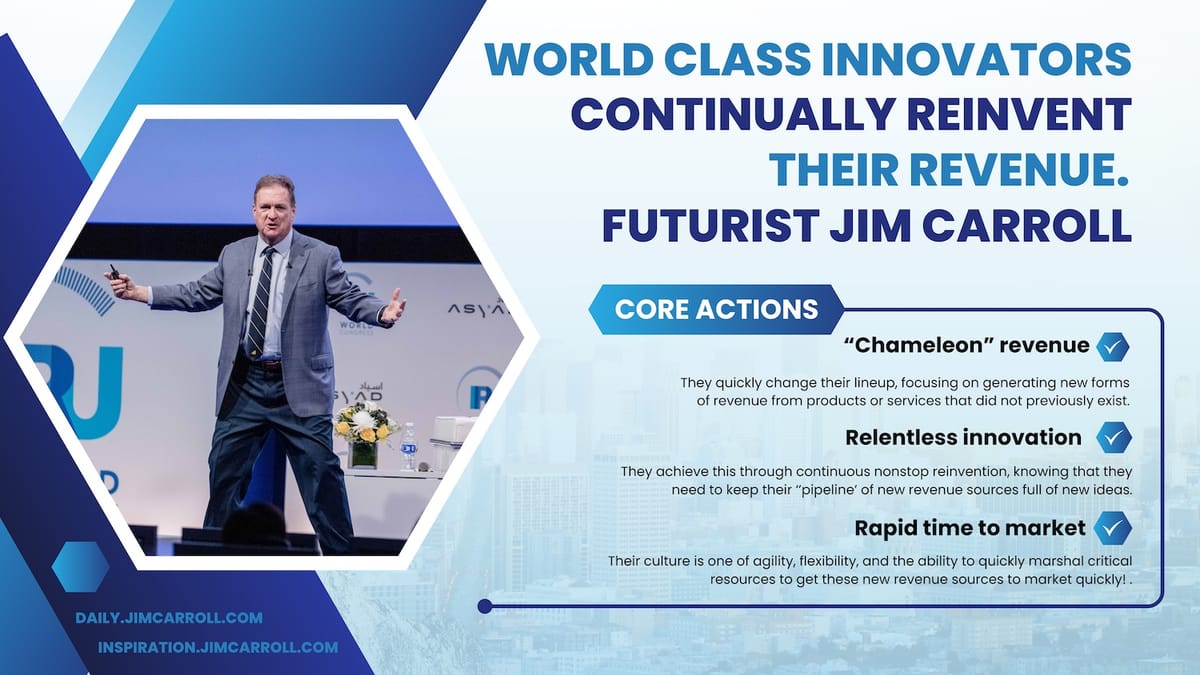"World class innovators continually reinvent their revenue- Futurist Jim Carroll
Futurist Jim Carroll is running his Daily Inspiration series for the weeks of March 11/18 on the theme of "What is it that World Class Innovators Do That Others Don't Do?" The leadership ideas are based on an original keynote he gave early in 2009 after a client asked him to identify these issues. He developed this carefully curated list based on 15 years of observations of how his global clients responded to fast-paced change. The concept worked it's way into a 2010 video project that he undertook for Deloitte - and these posts will share relevant content from that video project when applicable.
World class innovators don't stand still - they continually reinvent their structure, skills base, culture, and concepts. They are also aware that they must continually reinvent their products and services, knowing that their ability to come up with new sources of revenue will be fundamental to their future success.
They do this by following three fundamental ideas.
- They pursue the concept of 'chameleon revenue.' They quickly change their lineup, focusing on generating new forms of revenue from products or services that did not previously exist.
- They are relentless in innovation. They achieve this through continuous, nonstop reinvention, knowing they need to keep their "pipeline' of potential new revenue sources full of new ideas.
- They master 'fast time to market.' Their culture is one of agility, flexibility, and the ability to quickly marshal critical resources to get these new revenue sources to market quickly!
That's the second item on my list of 10 things that world-class innovators do that others don't do. When the idea worked its way into the video project I did in 2010 for Deloitte, I took to covering the issue with an emphasis on these core ideas.
The idea of 'relentless revenue reinvention' emerged with my observation of what was happening in the tech industry at the time - particularly with the furious pace of innovation occurring at Apple. In particular, clarity came when I read a report that indicated that some 60% of the revenue of Apple comes from products that did not exist five years ago. That's reinvention at a blistering speed!
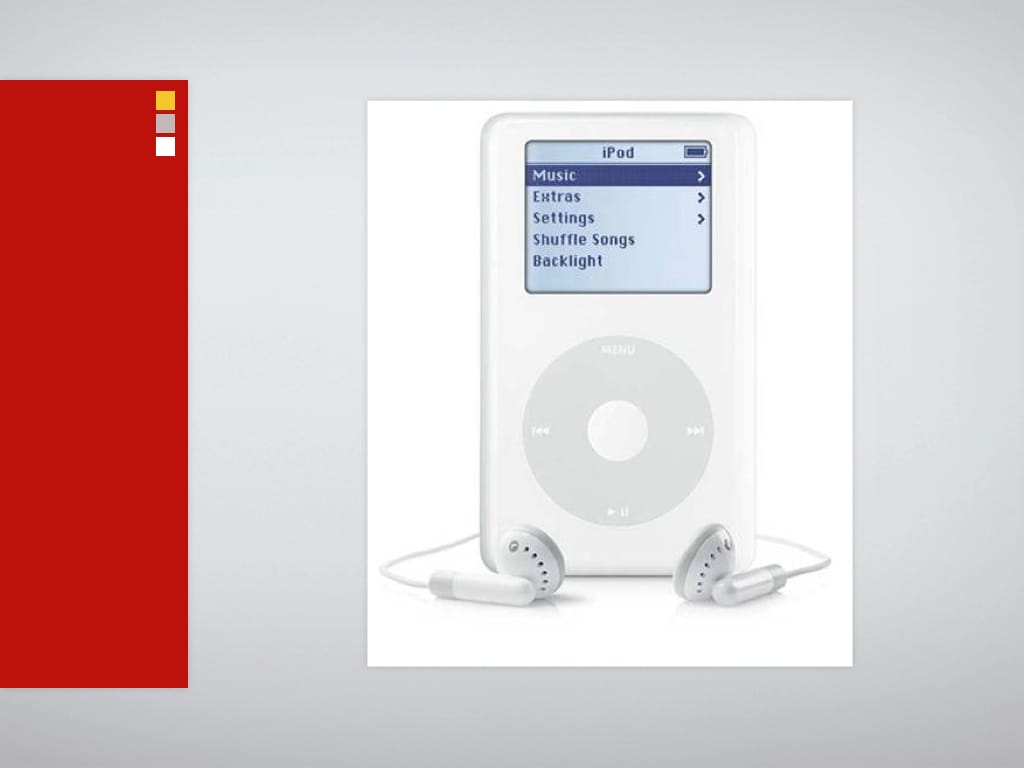
Thinking about all the other clients I had been spending time with, there seemed to be a common thread that the CEO or others would talk to me about as I prepared my keynote. "We need to enter new markets." "We need to innovate faster." "We must speed up our new product pipeline." There was certainly a common theme to their thoughts!
Right around that time, I spent time with a company in the specialty chemicals business. Their CEO spoke to me about his plans for the fast-emerging LED TV marketplace. He saw that his company had a chance to get involved, become a dominant supplier, and sell a lot of products - and then, the run would be over. Why? He also saw that the era of LED TVs would be replaced by OLED TVs, which would NOT use the core product he sells. In his mind, he had a chance to get in, capitalize on the opportunity, and then move on to the next potential idea. He then spoke of his belief that he needed to do this with multiple different markets involving multiple different products - this ability would be core to the future of the company.
It was with that story that I coined the phrase I would often use on stage - with a nod to Pink Floyd - that companies would need to continually develop short, sharp shocks of revenue. The TV image played into the idea perfectly.
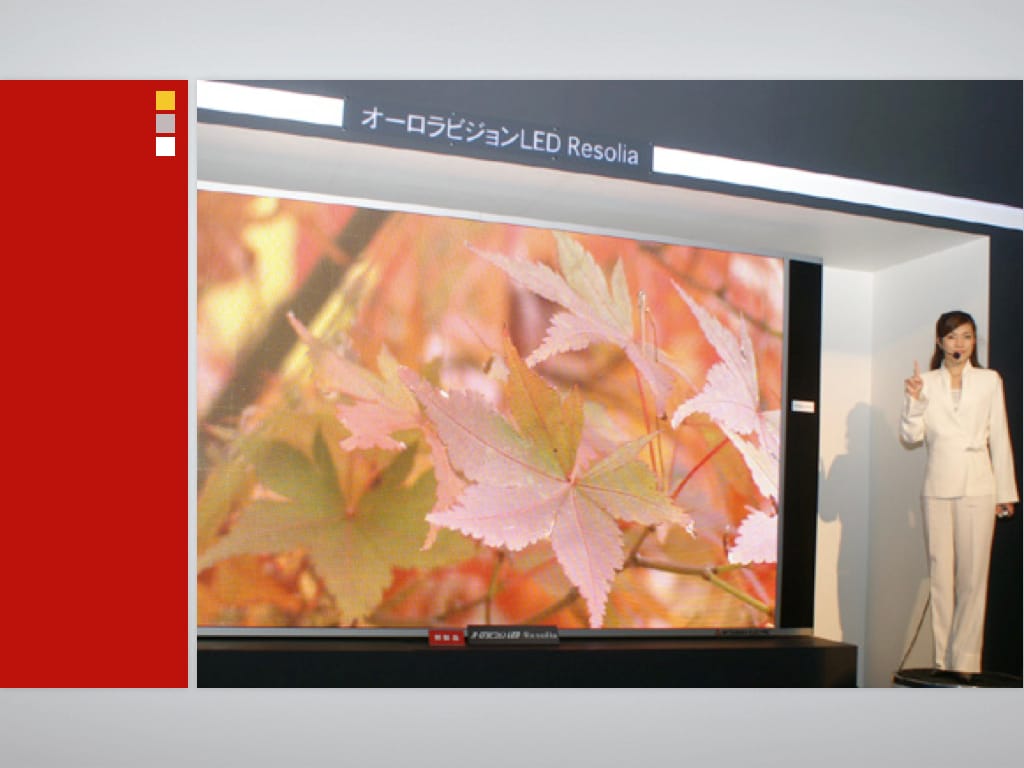
From these observations and more, I coined the idea of 'chameleon revenue,' often using a graphic to emphasize the point.
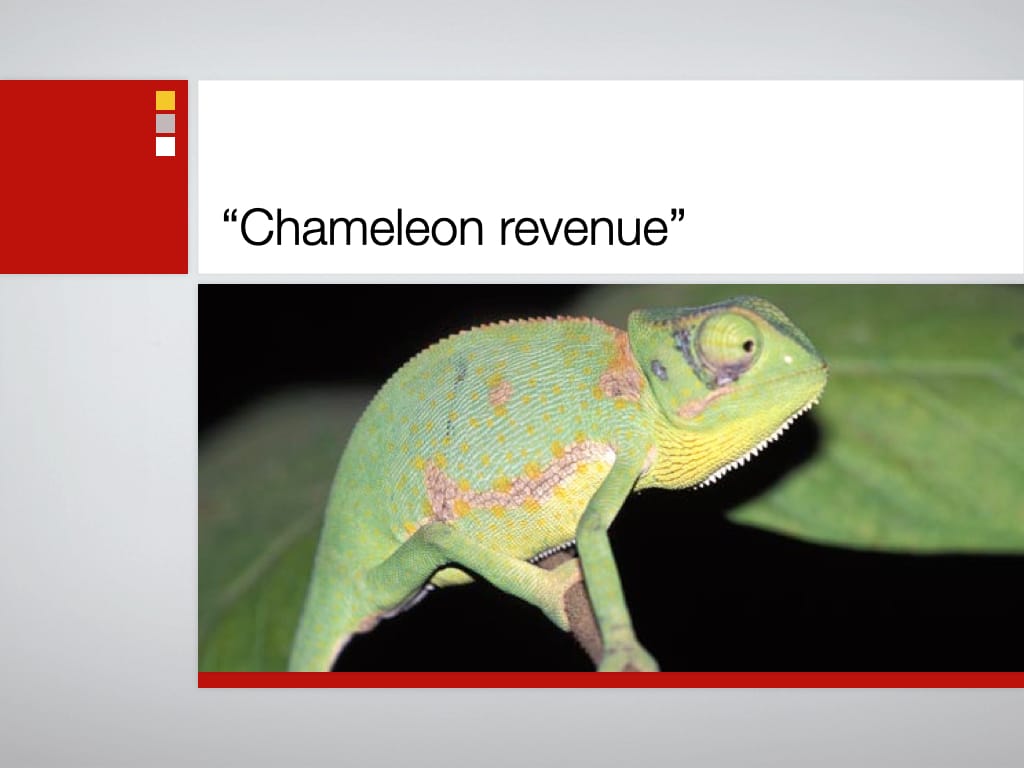
Most importantly, I would challenge the audience to think about what they would have to do to regularly reinvent their business going forward - given that rapid change meant that the speed of innovation that existed with Appole would become pretty common to everyone.
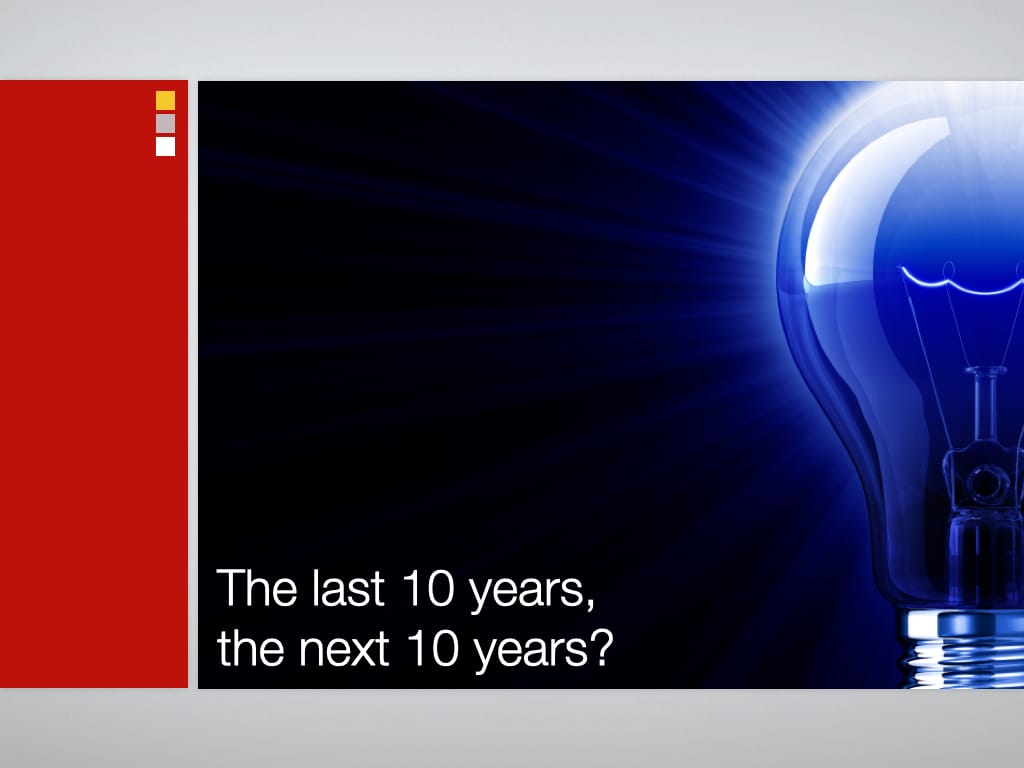
And from all this flowed the mantra by which I challenged them on disruption. You know it by now:
Companies that do not yet exist willbuild products not yet conceived using materials not yet invented with methodologies not yet in existence.
World class innovators focus on this concept, knowing that the corer success of their future is found in their ability to continually generate new forms of revenue that did not previously exist.
In today's fast-paced world, that rule is even more relevant than it was 15 years ago!
Reinvent like your life depends on it.
Because it does!
Futurist Jim Carroll still speaks to the issue of 'world class innovation' to this day at many of his leadership keynotes, sharing his belief that it is even more fundamental to future success today.

